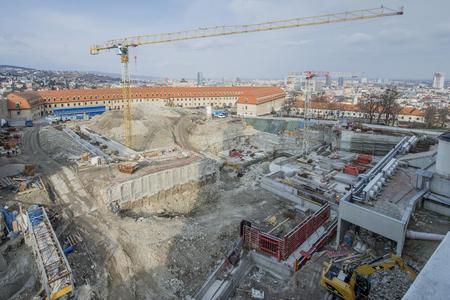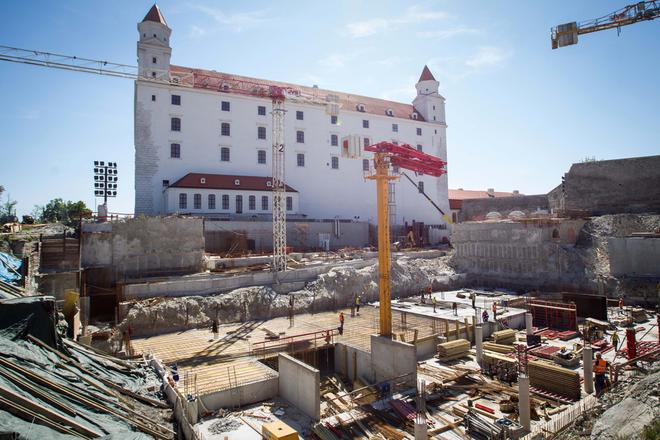The garage under Bratislava Castle, whose construction raised protests as its construction endangered precious archaeological findings, is now open to the general public, as promised by the office of the Slovak parliament now Slovakia’s presidency of the EU Council is over. During the second half of 2016 the garage was used during events taking place in connection with the presidency.
“This is in any case a garage for MP's but it should also especially serve the public,” Daniel Guspan, the head of the parliament’s office wrote on the parliament’s website. “It should serve all visitors to Bratislava Castle, either those visiting exhibitions or attending cultural and social events taking place in the Winter Riding Hall or the Baroque Garden.”
Guspan believes that thanks to the garage the whole area will be cleared of cars and will finally become a pedestrian zone.

The parking fee is set at €3 per hour, a rate comparable with parking fees in other areas of Bratislava. Those, who use the garage when visiting museums or restaurants at the castle, can ask for a discount either at the cash desk of the museum or in the restaurant.
The entrance to the garage is from Palisády street. It is open daily from 8:00 until 24:00 with the last entry at 23:00.
The controversial four-floor underground garage for 222 cars was built two years ago. Its construction cost €6 million excluding VAT and was built by the Váhostav company of Juraj Široký, alleged sponsor of Robert Fico’s Smer party.
Its construction raised protests from Bratislavans as it was built at the place where the remains of Romano-Celtic constructions were found.
Activist Monika Kozelová believes that the whole investment was not needed, as just opposite there is another underground garage, and apart from this it endangered precious archaeological remains.
“The garage is overpriced and what is most sad is that it was built on the most precious monuments we in Slovakia have,” Kozelová told the private TV Markíza.
Back in 2009 archaeologists excavated the remains of Celtic architecture built according to Roman designs.
“This significant finding has exceeded all expectations and fundamentally changed our view not only of the history of Bratislava and south-western Slovakia but also the development of the central European area during the first century BC,” said archaeologist Margaréta Musilová back in February 2015 as cited by the TASR newswire.


 Constructing the controversial garage. (source: Sme)
Constructing the controversial garage. (source: Sme)